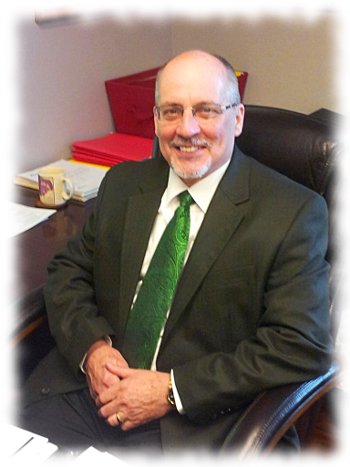“I Forgive You.”
by Pastor Edwin Lehmann on October 9, 2018 in Matthew 18:21-34
The Seventeenth Sunday after Pentecost September 16, 2018
Text: Matthew 18:21-34 ILCW – A 18:2084
Theme: “I Forgive You.”
“I forgive you.” Do those words that fall easily from your lips? Three short words: “I…forgive…you.” Simple, right? Just 3 words! But they can be some of the hardest words to say.
Take Adam for example. After he and Eve disobeyed God in the Garden of Eden, God came to them in the evening and asked what they had done. Instead of saying, “Lord, I have sinned against You. Please forgive me.” Adam looked to Eve and replied: “Lord, the woman you gave me gave the fruit to me and I ate it.”
So, instead of first confessing his own fault in the matter, Adam pointed out another person’s guilt. He offered Eve no word of forgiveness for the wrong that she had done to him. Thus, it began, the saga of human beings seeking to excuse themselves of their own guilt and neglecting to speak 3 simple words, “I forgive you.”
“I forgive you.” Those words aren’t always easy to say. Sometimes, we prefer to resent the persons who wrong us. We may even seek to exact a measure of revenge on them.
Oh, to be sure, the act of revenge may not be great and may not be recognized by us. I may not plan to go out and shoot the person. I might not even say anything in retaliation. But it is not so difficult to hold a grudge or harbor resentment in my heart. So often the silent suffering I convince myself that I am enduring is nothing less than a refusal to forgive. But Jesus makes it clear – we do not forgive aright if we do not forgive completely from the heart.
I forgive you. They are difficult words for sinners to say. What will help us say them and mean them from our hearts?
I. God has forgiven me much.
A little boy once told his mother in anger, “I’m never going to speak to my brother again!” His brother had been teasing him, calling him things that made him cry. His mother replied, “But don’t God’s children forgive each other?” “I’m tired of forgiving,” he said. “Must I forgive my brother when he keeps on hurting me?”
A little boy’s problem? Yes. But Peter asked a similar question
in our text. It came right after Jesus said: “If your brother sins against you, go and show him his fault, just between the two of you. If he listens to you, you have won your brother over.”
Jesus’ point? In love reach out to help your brother or sister in faith who has harmed you. Go to him. Don’t complain about it to others. Go privately to the one who has hurt you. State the matter directly, but kindly show him the wrong. Generally, that would have the desired effect – at least with a Christian. And if he truly is a brother in faith, you will be reconciled. If only we would do what Jesus lovingly instructs us to do, things would go much better!
But proud hearts are prone to center on self and imply with Peter: “I’m willing to forgive several times. But shouldn’t there be a limit to the times I have to forgive him? If he keeps on doing the same thing over-and-over again, shouldn’t there be an end to it?”
Ah, I can understand Peter’s thought; can’t you? We struggle with wounded feelings. Who wants to be hurt time and time again? Who wants his Christian kindness to be taken advantage of? Who wants God’s grace to be turned into a license to sin? (Jude 4). There must be a limit to what we put up with – don’t you think?
Peter picked the number “7,” thinking that was gracious on his part. It was over twice as much as the 3 times that his Jewish rabbi taught him to forgive. Jesus’ replied, “Not seven times but seventy-seven times.” Some translations read “seventy times seven.” The number written in the Greek is difficult to determine in English terms. But the meaning is clear – much more than you think.
Hardly ever would anybody sin against me in the same way that often. But if it should happen, I should always be willing to forgive, no matter how many times – no matter how great or small the offense is. I forgive you.
Then our Lord told a story: There was a man who owed his king more than he could ever repay. So, the king determined to sell the man and his entire household to recoup some of the loss. That was an acceptable practice in those days. But the debtor pleaded with the king and the king had compassion on him. He didn’t sell the man but forgave him the entire debt. He wouldn’t have to pay anything! How magnanimous, for the debt was in the millions!
That same man went out and violently threw a fellow servant into jail because he owed him money, a sum that could be repaid but which he could not pay right away. When the king heard of it, he was angry and had the man brought before him. He said, “You wicked servant! I forgave you all that debt because you pleaded with me. Couldn’t you have had mercy just as I had on you?”
“As I had on you.” How merciful God has been! How good
He’s been to me! For Jesus’ sake He has no trouble saying, “I forgive you.” And He has said it over-and-over again! So many times! Count them all, if you can.
Suppose, just suppose that I could limit myself to only 3 sins a day – just 3 bad thoughts, unkind words, or bad things that I do to others. Over a year’s time that would be 365 times 3 or about 1,100 sins. Multiply that by a lifetime of 80 years and I would come up with 88,000 sins. And that’s if I could keep it to just 3 unkind and bad things a day. How deeply I am in debt in sin to God.
Yet, He has been good to me. He simply wipes it all away for Christ’s sake. The Bible says, “He forgave you all your sin, having canceled the written code with its regulations that was against you…He took it all away, nailing it to the cross (Col.2:13). All forgiven, all thrown away, all remembrances of it forgotten. He says, “Though you have burdened me with your sins…I am He who blots out your transgressions for my own sake, and I will not remember your sins” (Is.43:24f). “As far as the east is from the west, so far have I removed them from you” (Ps.103:12).
For Christ’s sake, not a one of those 88,000-and-more sins does He remember. That’s grace, that’s mercy, that’s compassion, that’s forgiveness in Christ and His payment of the debt for me. “I Forgive You!” My heavenly Father says it to me daily. He’s been so good to me. He’s forgiven me so much.
And then He says, “Be kind and compassionate, tender hearted, forgiving one another, just as in Christ (I) forgave you” (Ep.4:32).
II. So will I forgive much from my heart.
Oh, but my heart still needs help. As a Christian I want to forgive, but at the same time I want to hang on to my resentment. I need to picture such loving, compassionate, God-like forgiveness that comes not just from the lips but from the heart. And here comes just such a picture to help me in the O.T. Lesson today.
After all the bad things Joseph’s brothers did to him, they were afraid that he would get even with them when their father died. But Joseph was heartbroken that they would think that way. He told them, “Don’t be afraid. Am I in the place of God? You intended to harm me, but God intended it for good to accomplish…the saving of many lives. So then, don’t be afraid.”
I need that kind of heart, one which humbly trusts that God will turn the bad done to me into good. I can’t always see how, but He will turn it to good. He’s promised. That’s the kind of heart I need, a heart humbly trusting Him. Such a heart can then seek the welfare of others, even of those who have hurt me. Where can I get such a heart, because I’m not doing so well at producing it on my own?
How can I get such a heart? By returning again and again to the foot of the cross where Jesus died for me. Standing there and looking up to him daily will enable me to forgive from my heart. If my heart can’t forgive after seeing all that Jesus went through for me, then I have no idea from whence forgiveness flows.
The story is told of a small gravestone standing in a secluded corner of a cemetery. Polished smooth by wind and weathered by many years, one no longer sees the name or the dates of the person buried there. If you passed by that stone, it would tell you nothing about the man, woman, or child lying beneath it. There is nothing legible on the face of the fading stone except one word. In letters that neither wind nor weather have erased, stands a solitary word – “Forgiven.” No epitaph could be more eternally eloquent.
There is nothing more glorious than to have found my forgiveness at the hand of a merciful God. And the person who possesses that heavenly wonder for himself will more easily be able to make 3 short words his own: I…forgive…you. For, you see, the simple truth of the matter is this: The forgiven forgive. They don’t ask “why?” or “how often?”; the forgiven simply forgive. God grant it to us in faith for Jesus’ sake.

